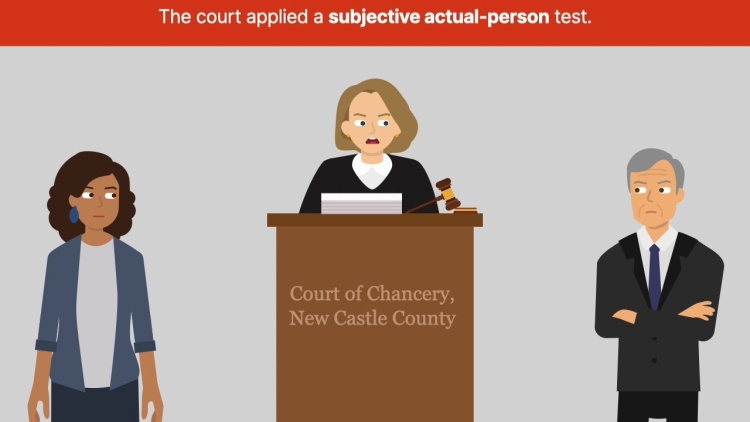Cinerama v. Technicolor, Inc.
Delaware Supreme Court
663 A.2d 1156 (1995)

- Written by Douglas Halasz, JD
Facts
Cinerama (plaintiff) sued Technicolor, Inc. (Technicolor) (defendant) regarding a proposed merger transaction involving a third-party. Cinerama contended that five of Technicolor’s nine directors were materially affected by conflicts of interest related to the transaction. The lower court applied the objective reasonable-person test and found that a reasonable director in the same or similar circumstances would be affected by a material conflicting financial interest for only one of the Technicolor directors. The Delaware Supreme Court rejected the application of the reasonable-person test and remanded the case for the lower court to determine, among other issues, the issue of Technicolor’s board independence. On remand, the lower court applied a subjective actual-person test and again found that only one of the directors in fact had, or would likely be affected by, a material conflicting financial interest. Regarding the issue of board independence, the lower court suggested that if actual self-interest is present and affects a majority of directors approving a transaction, then the courts should apply the entire-fairness standard. Accordingly, the lower court concluded that Cinerama could rebut the application of the business-judgment rule if it proved that the interested director controlled or dominated the board, or that the interested director failed to disclose their interest in the transaction to the board and a reasonable board member would have considered the material interest significant when evaluating the proposed transaction. The lower court found that the interested director did not dominate or manipulate the board’s consideration and a large majority of Technicolor’s board was disinterested and independent with respect to the transaction. Therefore, the lower court ruled in Technicolor’s favor. Cinerama appealed.
Rule of Law
Issue
Holding and Reasoning (Holland, J.)
What to do next…
Here's why 911,000 law students have relied on our case briefs:
- Written by law professors and practitioners, not other law students. 47,100 briefs, keyed to 997 casebooks. Top-notch customer support.
- The right amount of information, includes the facts, issues, rule of law, holding and reasoning, and any concurrences and dissents.
- Access in your classes, works on your mobile and tablet. Massive library of related video lessons and high quality multiple-choice questions.
- Easy to use, uniform format for every case brief. Written in plain English, not in legalese. Our briefs summarize and simplify; they don’t just repeat the court’s language.





